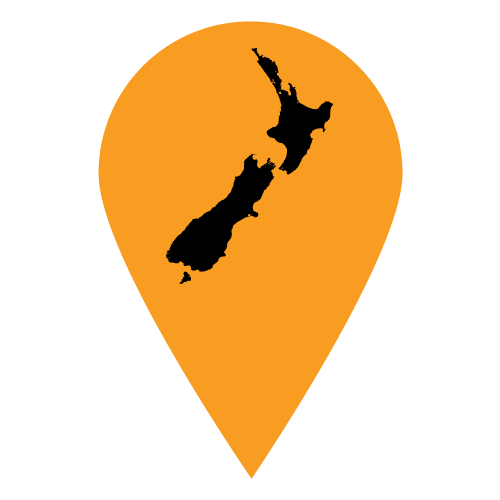Coalition's halt of freshwater plans echoes Labour's mandatory Three Waters reform
An AI-generated image of a man in a suit holding up a stop sign in a river.
While most eyes were on the drama unfolding around Wellington City Council, another just as consequential intervention was unfolding in relation to the environmental planning and regulation role of regional councils. The Coalition Government introduced an amendment to its Resource Management Act reform legislation to block the notification of plan changes relating to the former Labour Government’s National Policy Statement for Freshwater Management 2020 reform, (sometimes referred to as Essential Freshwater) spiking a meeting of Otago Regional Council today that was set to notify their plan change.
Freshwater reform was one of the most contentious issues of Ardern’s Labour Government. I was working for red meat industry body Beef + Lamb New Zealand at the time it was being developed and consulted on and witnessed firsthand the debate around it which often saw different parts of the primary sector at loggerheads with each other, let alone with the outcomes that environmental advocates wanted.
That the Coalition has moved to block the NPS for Freshwater Management reform should come as no surprise to anyone. Not only did replacing it feature in both coalition agreements (ACT’s odd reference to district councils rather than regional ones was probably a typo on their part), but a quick search of the Beehive website shows the Coalition has been saying ever since it came into office that it was going to replace Essential Freshwater and promptly kicked the deadline out for notifying them to the end of 2027, allowing the new government plenty of time to develop a replacement National Policy Statement (NPS).
It was, somewhat surprisingly for the Coalition given their ruthless approach to repealing other parts of Labour’s policy programme, a rather gentle nudge towards an exit ramp that they hoped regional councils would opt to take. If anything, it reminds me of Theodore Roosevelt’s “speak softly and carry a big stick”. The Coalition could have swung the legislative axe all the way back in December 2023 to stop regional councils from progressing freshwater plan changes, but instead they opted for a “we’re going to replace this in the next two years, so here’s a huge extension on implementing the current regulations so you don’t feel the need to rush things.”
However, until the Coalition actually got around to specifically forcing regional councils to not implement freshwater plan changes, regional councils would argue that they were still within their legal right and had mandates from their communities to progress any plan changes they had been developing and consulting on under the existing NPS for Freshwater Management 2020 regulations.
This would especially be the case where a regional council might feel that their existing plan had significant issues and they didn’t want to wait another two or more years try and rectify them with potentially lower environmental bottom lines, or had already sunk significant costs into developing a plan change and felt that it was still worth implementing them.
Likewise there is an element of politics in this too. Where a regional council might lean the opposite way politically to the Coalition, if they felt the existing NPS would lead to outcomes that were more aligned to their positions than what the Coalition might eventually develop for them, then you can see why they’d look to press ahead knowing that they could get plan changes notified and it’ll then be a while before the Coalition’s own NPS would force another plan change process on them. This also contains a slight gamble that there would be a change of government in 2026 that might in turn torpedo the Coalition’s own changes.
All of this means is that what unfolded was a game of chicken between the Coalition and regional councils to see who would blink first. Greater Wellington Regional Council was, in part thanks to its simpler catchments relative to other regions, ahead of the game in terms of notifying things. Others decided to either go slow or delay changes until direction from central government became clearer, and Otago Regional Council opted to press ahead, which is ultimately what spurred the Coalition’s 11th hour intervention yesterday.
That the intervention came in the manner it did isn’t entirely surprising either. The Coalition has been progressively ramping up its language around preferring regional councils not press ahead with plan changes, and just over a month ago Environment Minister Penny Simmonds and Agriculture Minister Todd McClay had met with Otago Regional Council representatives to urge them to delay things.
With the Otago Regional Council voting to push ahead, the Coalition then decided to wield the big stick in response with their retrospective amendment to nullify any notification. While the bill hasn’t passed yet, there’s little doubt that it will, and when it does any notification by Otago Regional Council would be killed off.
Ultimately, this has been a clash of politics. Despite the rhetoric of the Coalition’s constituent parties about localism in the face of Labour’s various reforms that were regionalising many aspects of local government, the Coalition has firmly reminded local government that it is a creature of statute and is, regardless of what else they might say about the importance of local government’s role, at the bottom of the political pecking order.
Central government’s tolerance for directions of travel from local government that don’t align with their own policy programme is only finite. This is nothing new and not unique to right leaning governments either. In the face of fierce opposition from local government over their Three Waters reform, and facing the prospect of enough councils opting out of the then still voluntary reform to render the proposed multi-regional entities unworkable, Labour changed the reforms from being voluntary - where councils could decide whether to opt in or out, and made them mandatory.
The National-led Coalition’s decision to force the issue by swinging their big stick to block any further freshwater plan changes from being notified is ultimately more of the same. It’s why there are ongoing calls for local government’s role and position in the governance of New Zealand to be more formally entrenched in order to better protect it’s ability to act independently of central government.
Sadly, and as cynical as it is, it’s hard to see a central government from either side of the political spectrum ever deciding to empower local government to be able to stand in the way of its own plans. And so the cycle will no doubt continue.





